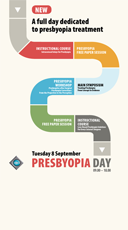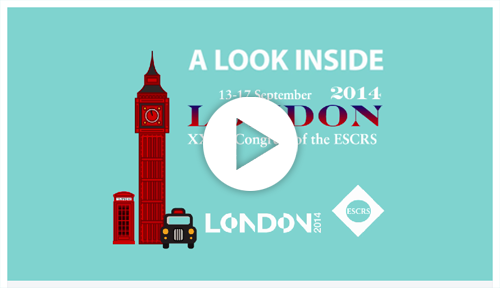Visual outcomes of LASIK for treating hyperopic eyes with or without astigmatism using an advanced excimer laser platform
(results will display both Free Papers & Poster)
Session Details
Session Title: Presented Poster Session: Presbyopia
Session Date/Time: Saturday 05/09/2015 | 15:00-16:30
Paper Time: 15:40
Venue: Poster Village: Pod 2
First Author: : S.Mughal UK
Co Author(s): : A. Hamid
Abstract Details
Purpose:
To evaluate the clinical outcomes in terms of the efficacy, safety and stability of LASIK utilising the Aberration-Free™ algorithm of the SCHWIND AMARIS laser's ORK-CAM software (SCHWIND eye-tech-solutions GmbH, Kleinostheim, Germany).
Setting:
One certified and experienced corneal laser surgeon practicing in the Birmingham clinic of Optimax Laser Eye Clinics, United Kingdom performed all the surgeries.
Methods:
This was a retrospective analysis of 145 eyes of patients whose mean age was 49 years (range 23 to 66 years) who underwent Intralase LASIK followed by stromal ablation. All eyes underwent ablation at a repetition rate of 750 Hz pulse with 1050 Hz eye tracking. The laser ablation was centred on the pupillary axis.
The intended refractive aim for all eyes was emmetropia and there were no retreatments included. All eyes had complete pre & postoperative 3 months of visual and refractive data. Uncorrected distance visual acuity (UDVA) and manifest refraction were evaluated at 3 months.
Results:
At 3 months, the preoperative manifest sphere was reduced from +2.36 ± 1.19 D (range: +0.25 to +5.25 D) to
+0.21 ± 0.44 D (range: -0.75 to +1.25 D) and the astigmatism was reduced from -1.17 ± 1.36 (range: 0 to -5.00 D) to -0.37 ± 0.38 D (range: 0 to -1.75 D).
The manifest spherical equivalent was within ± 0.50 D of emmetropia in 85% of eyes and UDVA of 20/25, 20/20, 20/16 or better was achieved in 70%, 55% & 12% respectively. In 1% of eyes there was loss of 2 or more lines of corrected distance visual acuity (CDVA) and 26% of eyes gained an extra line of CDVA.
Conclusions:
LASIK aberration-free treatments for hyperopia and hyperopic astigmatism with the SCHWIND AMARIS yields very safe, predictable and satisfactory visual outcomes allowing surgeons to treat hyperopia below the upper limit for corneal refractive surgery. Short term follow up at 3 months also indicates refractive stability and the preoperative ametropia improves to subclinical values. Longer follow-up is necessary to assess long term stability.
Financial Interest:
NONE





